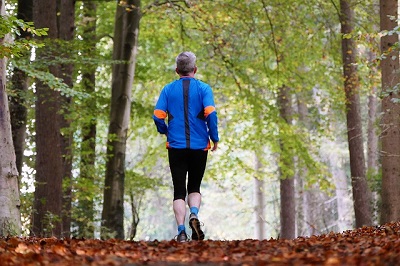Oligospermia and Asthenospermia: How to Exercise to Improve Sperm Quality?
In today's world, where fertility issues are gaining more attention, oligospermia and asthenospermia have become concerns for many men. Appropriate exercise is of great importance in improving sperm quality.

Aerobic exercise is a good choice. Jogging, swimming, and cycling can enhance cardiovascular function and promote blood circulation. Good blood circulation is crucial for the health of the testes because adequate blood supply provides the necessary nutrients and oxygen, aiding in the generation and development of sperm.
Take jogging as an example. Maintaining a routine of at least three times a week, each session lasting over 30 minutes, can effectively improve the body's metabolic level. Swimming is also a full-body exercise with minimal strain on the body; it can exercise multiple body parts and enhance coordination and flexibility.
Strength training is equally indispensable. Exercises like squats and bench presses can enhance the lower limbs and waist strength. Strong muscles in these areas help improve sexual performance and positively affect blood circulation in the testes.
Squats can stimulate the muscle groups in the hips, legs, and waist, promoting the secretion of male hormones, which, in turn, benefits sperm quality. In addition to these common strength training exercises, one can also try machine workouts, such as leg curls and leg extensions, to specifically train the leg muscles.
Yoga and Pilates are also worth trying. They can help reduce physical stress and tension, improving the body's balance and coordination.
Some yoga twisting and stretching poses can promote blood circulation in the pelvic area. Core stability exercises in Pilates help strengthen the abdominal and back muscles, providing better support for the body.
It is essential to exercise in moderation. Over-exercising can lead to fatigue, which may negatively affect sperm quality. It is advisable to schedule reasonable rest periods each week to allow the body sufficient time to recover and adjust. Additionally, proper warm-up exercises before workouts are necessary to prevent injuries.
For men with oligospermia and asthenospermia, it is recommended that they engage in at least three sessions of moderate-intensity exercise per week, each lasting 45 minutes to 1 hour.
The specific exercise plan should be adjusted according to individual physical condition and fitness levels. For example, men with better physical fitness can increase the intensity and duration of their workouts. In contrast, those who are just starting or have weaker bodies should gradually increase the amount of exercise.
Combining exercise with a healthy lifestyle will yield more significant results:
Maintaining adequate sleep ensures the body gets enough rest and repair during the night. Lack of sleep can affect the endocrine system, negatively impacting sperm quality. Avoid prolonged sitting; get up and move around periodically to promote blood circulation in the pelvic area. Prolonged sitting can raise the temperature of the testes, which is detrimental to sperm production.
The diet should not be neglected either. Consuming foods rich in nutrients such as vitamins C and E, zinc, and selenium—such as fresh fruits, vegetables, nuts, and seafood—is essential. These nutrients play a crucial role in the generation and development of sperm. For example, vitamin C can enhance sperm motility, vitamin E can protect sperm from oxidative damage, zinc helps in the production and maturation of sperm, and selenium can boost sperm immunity.
In addition to maintaining a balanced diet, herbal medicine, such as Diuretic and Anti-inflammatory Pill, can further optimize body functions and improve sperm quality.
Moreover, quitting smoking and limiting alcohol intake are also necessary. Smoking and excessive drinking can damage sperm quality and increase the risk of sperm abnormalities. Harmful substances like nicotine in tobacco can affect blood circulation in the testes and sperm production, while alcohol can have toxic effects on the reproductive system.
In conclusion, scientific and reasonable exercise combined with healthy lifestyle habits can positively impact sperm quality. However, if the issue of oligospermia and asthenospermia is severe, it is advisable to seek medical attention promptly and undergo comprehensive treatment under a doctor's guidance.
You may also be interested in:
Asthenospermia and Oligozoospermia Can Affect Fertility and Bring More Terrible Harms



